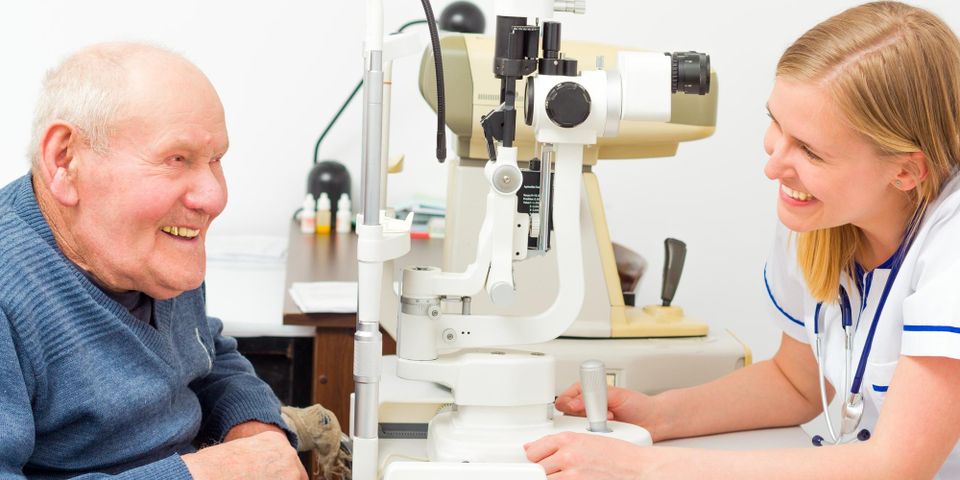An Introduction to Glaucoma Symptoms & Treatment

As we age, changes in our eyesight are normal. Some people experience a shift in vision and require glasses or contacts, while others may experience more severe changes, such as glaucoma. Regular eye exams are essential to treating any eye condition, but if you’re over the age of 60 and are concerned about your eye health, here’s what you need to know about this medical condition.
A Brief Guide to Glaucoma
What Is It?
Glaucoma is a degenerative disease that affects the optic nerve. Fluid builds up in the front of the eye and causes an increase in internal pressure. The extra pressure puts strain on the optic nerve at the back of the eye, leading to partial or full blindness.
Conditions fall into two different categories: Open-angle and acute angle-closure. Open-angle is the most common form of the disease and happens gradually. The eye doesn’t drain fluid normally and results in unnecessary pressure buildup inside. Open-angle is painless, and the shifts in vision occur over time.
Acute angle-closure occurs when a patient’s iris is close to the drainage angle and blocks the fluid in the eye. The iris can slip, and fluid can build up rapidly, causing immediate blindness. For this reason, acute angle-closure is a serious eye emergency.
What Are the Symptoms? 
Depending on the type you’re experiencing, symptoms can vary. For the open-angle disease, patients may experience:
- Tunnel vision
- Patchy blind spots in their peripheral or central vision
For acute angle-closure, patients can experience:
- Severe headaches
- Nausea
- Eye pain
- Blurred vision
- Eye redness
- Halos around lights
Treatment Options
Unfortunately, glaucoma is permanent and can’t be reversed; however, there are surgeries and medications that can help prevent further damage once the disease is identified by your eye doctor. Your optometrist may prescribe daily eye drops that reduce pressure or other medications that help prevent fluids from building up.
Laser surgery has also been shown to improve symptoms and help people regain some of their vision. Trabeculoplasty is for those living with the open-angle condition, while iridotomy is a procedure used specifically for those with acute angle-closure.
Prevention is also key to protecting your eye health, and there are steps you can take now to prevent the disease and blindness as you age. The American Academy of Ophthalmology recommends that patients get comprehensive eye exams with eye dilation every five to 10 years if they’re under 40. If you’re over 40, it’s recommended that you have these exams done at least once every three years.
Glaucoma can be caught and treated with the help of your eye care team from Midwest Eye Center: A Division of TriState Centers for Sight. Located in Cincinnati, OH, this team of specialists is prepared to treat any type of eye condition. They use the latest in eye care and exam technologies, including laser surgeries, LASIK®, and KAMRA™ inlay treatments. To schedule your next comprehensive eye exam, call their office at (859) 331-5600 or visit them online for more information.
About the Business
Have a question? Ask the experts!
Send your question

